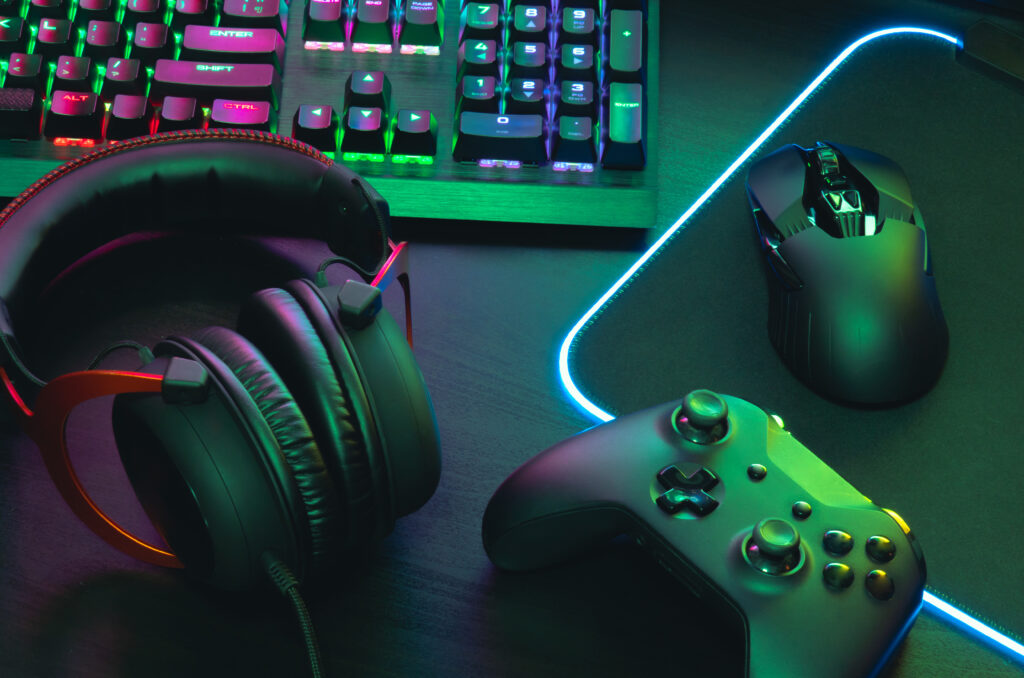Nordic DiGRA 2025 conference presents a keynote speaker blog-series. This three part series continues with the second conference speaker Professor Kristine Jørgensen, Media Studies, University of Bergen, Norway.
Why should we care about men in gaming when research shows that it is women who face issues of exclusion and harassment in videogames?
An important reason is that we have limited knowledge of men and masculinity in gaming. This may seem like a paradox since men historically have been the majority of videogame players and also the main target group of videogames. Gaming has been so tightly associated with men and boys that when someone uses the word gamer to describe a person, they are in most cases talking about a man or a boy. It seems as if the gender gap has left researchers more interested in trying to understand what it means to be the minority group in gaming, an interest that may have been given extra weight in the light of the fact that research has documented that gaming women indeed experience marginalization and that game culture often is an unwelcoming and hostile space.
Let me leave no doubt that this does not mean that the research on women and other marginalized groups is not important. On the contrary, gender perspectives in game studies have been able to bring attention towards a lot of problematic gendered practices. However, since gender research within gaming has focused on women and their experiences, we are short in knowledge about what it means to be a man in gaming. As a matter of fact, ongoing research in my project shows that a lot of what we know about men and masculinity in the context of gaming comes from research on women gamers and how they experience being part of a male-dominated subculture.

Little research documents what masculinity in gaming means for men, or what it is like being a man in gaming culture. This does not mean that men are not featuring in research on videogame players – quite on the contrary – but it means that men in gaming are rarely studied because they are men. They are simply the ones available for study and no one has questioned the assumption that they somehow represent the universal or normal game enthusiast. So far in games studies, men have been treated as if they do not have a gender, but that they are the standard, genderless audience of games. This ignores the obvious fact that men also are gendered beings and that this may be relevant for how they view games, gameplay and the communities and social interactions surrounding games.
If gender is seen as a relevant category for understanding women’s experiences with games, it surely also must be relevant for understanding men’s experiences with games. We know little about what it means for men to also be a game enthusiast, and how their identity as being both men and gamers interplay. In other words, it’s relevant to ask whether being a man matters in gaming, how masculinity is expressed and performed in gaming, and what it means for men to play games in an environment where gender has become contentious. With basis on the high amount of negative experiences coming from women in gaming, it is not unreasonable to ask whether men share women gamers’ worldview, or whether they hold a different perspective. What are men’s experiences with gender in games, and if there is gender problem in gaming, what do men find to be the problem?
Without knowing what it means to be a man and a gamer, we cannot say much about how or why issues such as gendered harassment and exclusion in gaming is connected to masculinity. This means that we still need to be attentive towards the gendered aspects of gaming, but that we must also include men into this loop. Without understanding the perspectives of the different genders, we cannot fully understand the contestation of game culture as a gendered problem. Without understanding men’s perspective, we cannot fully grasp what is really at stake in gaming. This also takes us to another important reason why we need to care about men and gaming: If we want to change the high degree of conflict and contestation in gaming, we are dependent on including men into the conversation about solution. And if we do not hear them out, we cannot expect a fruitful contribution.
On this backdrop, in my keynote I will talk about my research project Understanding Masculinity in Gaming. I will discuss how masculinity and men have been tackled in game studies so far, and share our project results so far. This will be used to critically discuss the term “gamer masculinity”.
Kristine Jørgensen, professor of Media Studies, University of Bergen, Norway